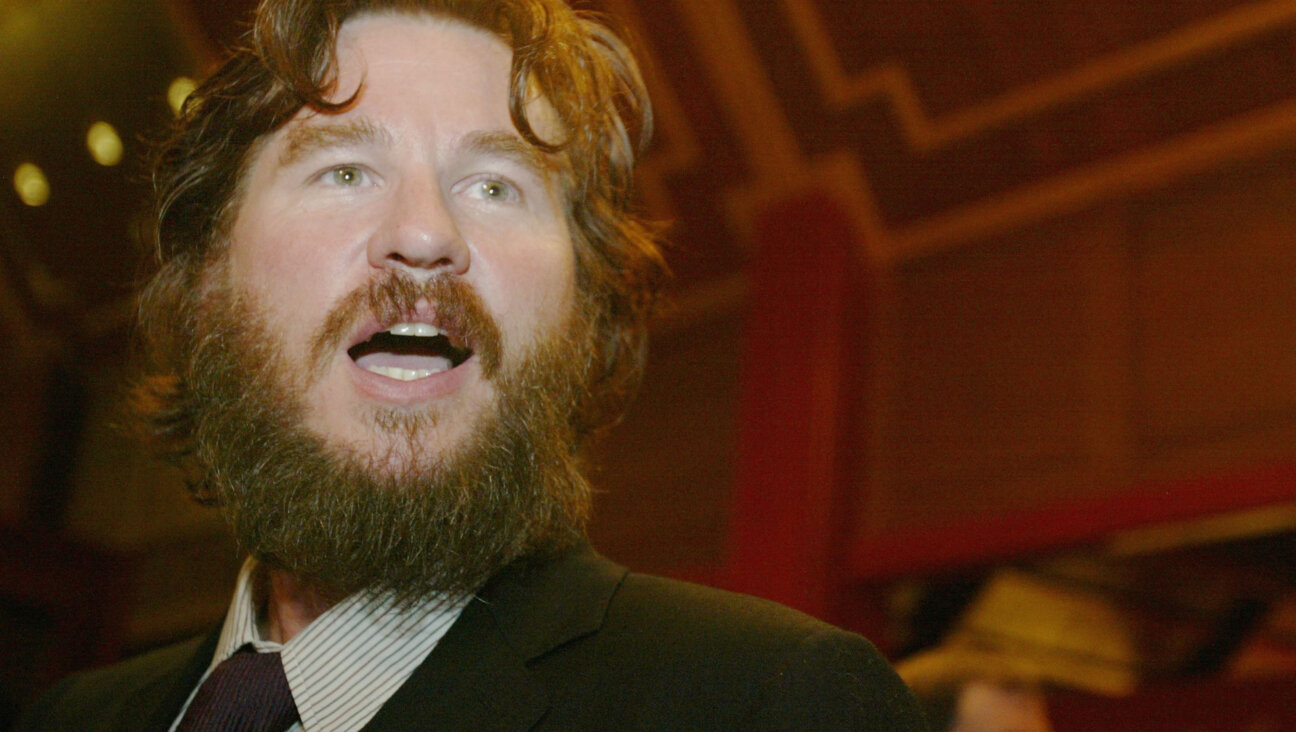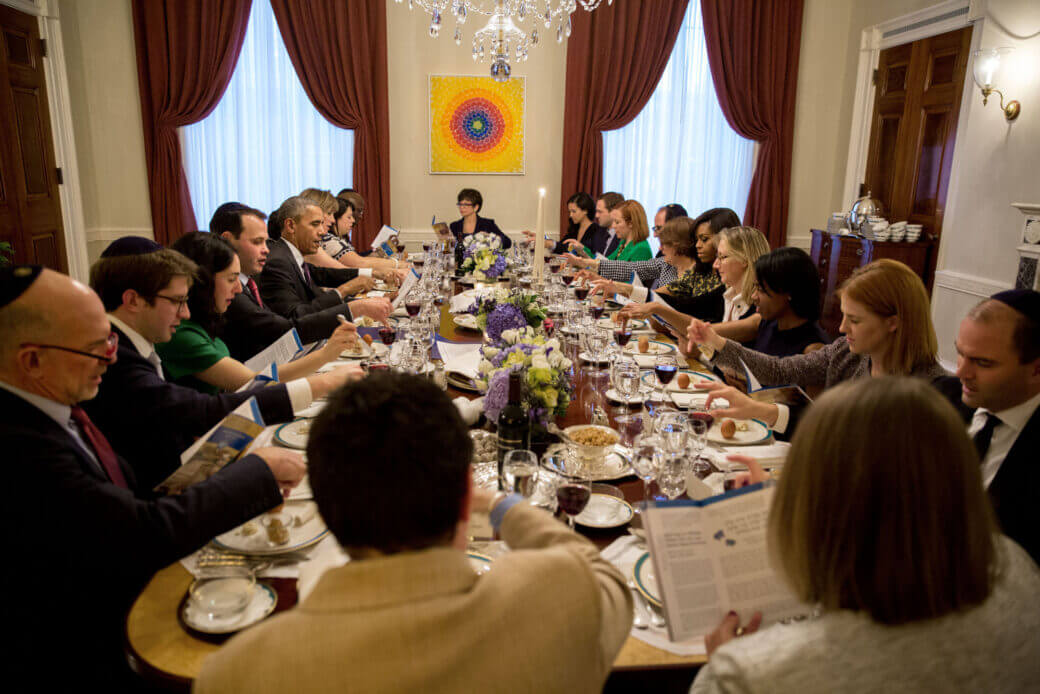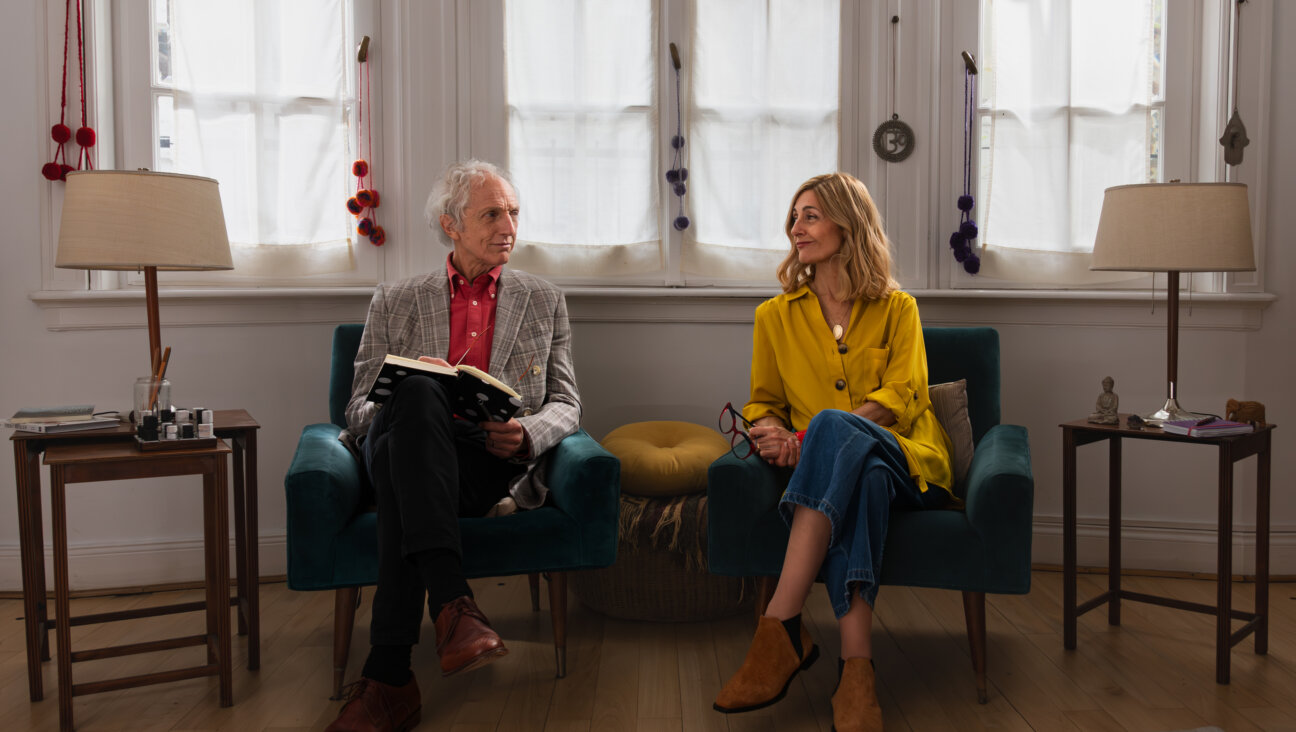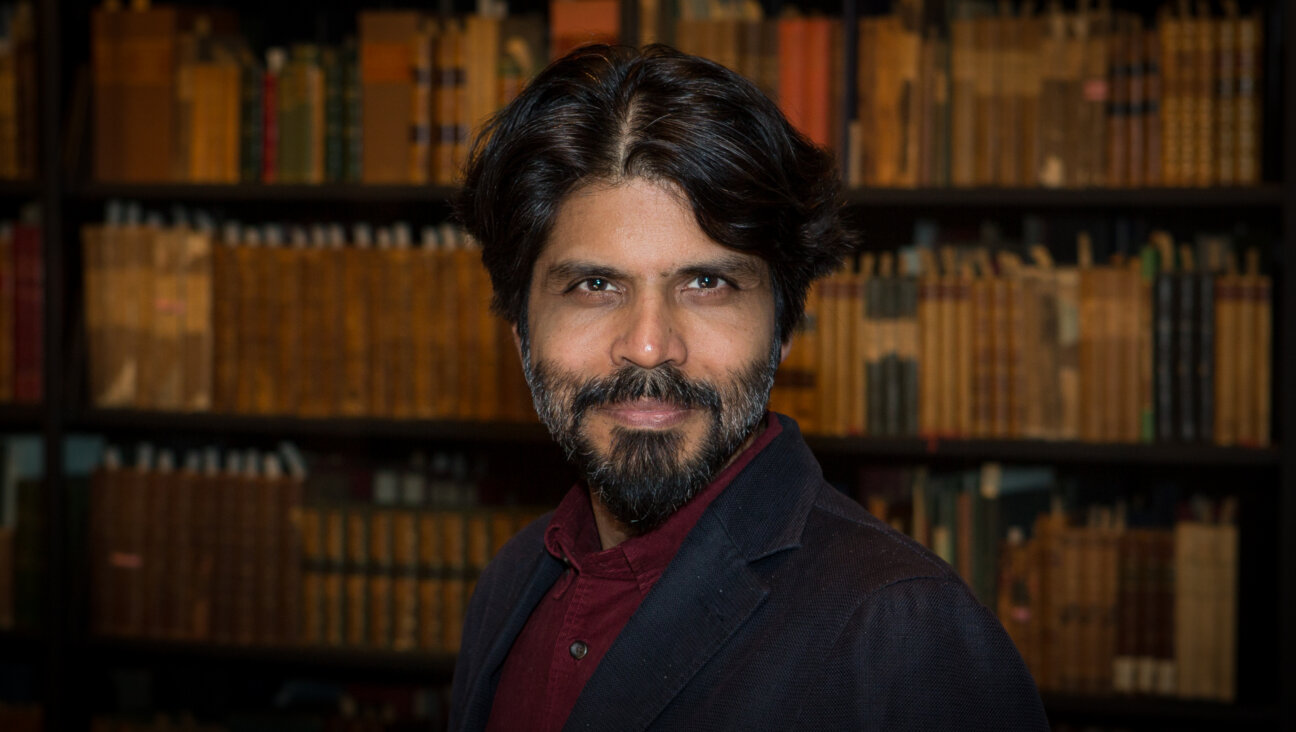Mexican Jews love their country. But do they love the next president? It’s complicated
Claudia Sheinbaum is Jewish, but her Jewish constituents care about politics, not identity

The interior of Historic Synagogue Justo Sierra 71 in Mexico City, now a cultural center. Photo by Mexch via Wikimedia Commons
Jews are a tiny minority in Mexico’s population of 130 million: 60,000, according to the latest national census. Those connected to the tight-knit Jewish community clustered in suburbs around Mexico City are estimated to be around 45,000.
On the face of it, those small numbers make it remarkable that a Jewish woman, Claudia Sheinbaum, won the recent presidential election in a historic landslide, garnering twice as many votes as her nearest rival. She’ll be Mexico’s first female president and one of just a handful of Jews to ever lead a country outside of Israel.
But Mexican Jews say her religious identity (as well as her gender) was, for them and other voters, irrelevant. It’s Sheinbaum’s left-wing politics that define her. Among Jews, as in the broader electorate, progressives voted for her; political conservatives did not.
“Nobody voted for Claudia because she was Jewish or because she was not Jewish,” said Tessy Schlosser, director of the Mexican Jewish Documentation and Research Center in Mexico City.
Here’s a look at the long and sometimes surprising history of Mexico’s Jews, and why so many of them do not like Sheinbaum in a country where antisemitism isn’t rampant, but festers just below the surface.
500 years of history
The first Jews arrived in Mexico with Spanish explorers in the early 1500s, not long after Spain ordered all Jews to convert to Catholicism or leave the country. A recent discovery in Juliantla, in southwestern Mexico, Schlosser said, unearthed “a 16th century mikvah, archaeologically proven to be a ritual bath.”
Luis de Carvajal was a Jewish conquistador and provincial governor in northeastern Mexico. When the Inquisition reached the New World in 1571, Carvajal’s sister, nephew and others were tortured and burned at the stake. Carvajal died in prison, charged with enslaving indigenous people and covering up his family’s religious practices.
Today, some Catholic families have traditions of sitting shiva and lighting candles that suggest they may be descended from crypto-Jews, also known as conversos — Jews who converted but kept practicing Judaism secretly. Efforts over the years to connect them to the established Jewish community have failed, according to Schlosser and other experts.
Immigration in the 20th century
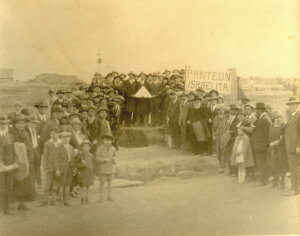
Most Mexican Jews today trace their roots to parents or grandparents who arrived in the early 20th century, fleeing pogroms or the chaos surrounding the Russian Revolution, World War I and the dissolution of the Ottoman empire. Some were Ashkenazim from Eastern Europe, but the largest cohort hailed from Aleppo, Syria, Schlosser said. Other Sephardim came from Damascus, Spain, Italy, Turkey and Bulgaria. Jews fleeing Hitler — about 2,000 of them —arrived in the 1930s and ‘40s.
Sephardic Jews opened a synagogue in downtown Mexico City in 1918 called Mount Sinai; Lithuanians opened a synagogue called Nidjei Israel nearby in 1941. The neighborhood also had kosher bakeries, butchers, Yiddish newspapers and theater. But as Jews climbed the socioeconomic ladder, they moved away to suburbs like Condesa, Polanco, Chapultepec, Santa Fe and Tecomachalco.
The Ashkenazi synagogue is now a cultural center and tourist destination. And the once-vibrant Jewish quarter “is almost abandoned,” said Carlos Sanchez, who leads tours there. “Only memories remain of where the matzoh factory was. We do not have a single place that even has a mezuzah on the door.”
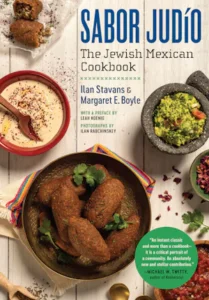
Yet the community remains intact. Experts say intermarriage rates are low, and 90% of Mexican Jews send their kids to Jewish day schools — partly because they think the public schools are weak and many private schools are Catholic.
Ilan Stavans, a professor of Jewish and Latin American culture at Amherst College in Massachusetts, remains so connected to his Mexican upbringing that he’s co-written a forthcoming cookbook, Sabor Judio, with Margaret Boyle, featuring recipes like gefilte fish with salsa. Stavans attended a secular Yiddish day school in Mexico City in the 1960s and ‘70s: “I’m 63, and my cousins my age in the U.S. did not know Yiddish, but my generation in Mexico did.”
Sheinbaum: Jewish, but an outsider to the Jewish community
Sheinbaum’s paternal grandparents came from Lithuania in the 1920s. Her maternal grandparents and, according to a Forward investigation, her mother, were Bulgarian Holocaust survivors who arrived in Mexico in 1946.
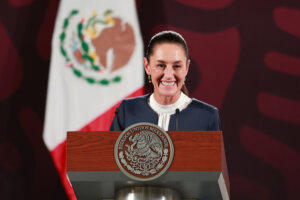
But unlike Jews who stayed close to their landsmen, Sheinbaum’s parents raised her in a neighborhood known for intellectuals, artists, academics and left-wing politics near UNAM, the National Autonomous University of Mexico. Sheinbaum and her siblings participated in activities in a large Jewish sports center, akin to a JCC, Schlosser said, but they were otherwise disconnected from that larger Jewish community.
Sabina Berman, a Mexican Jewish journalist and playwright, points out that “there’s also a Jewish leftist tradition,” and “that’s the tradition that Sheinbaum belongs to.”
Berman salutes Sheinbaum for not changing her name. “I remember in a first interview with her, the interviewer said, ‘Your mother is Jewish,’ and she said, ‘My two parents are Jewish,’” Berman recalled. “Then they asked, ‘Are you religious?’ and she said, ‘I’m an atheist.’ It’s surprising in Mexico that this goes over well; I thought this country was very Catholic, but they are mature politically. I’m very surprised at the way Mexicans reacted to her Jewishness; I’m proud of it.”
Claudia Bodek, a sociologist now retired from teaching at UNAM, is also a Jewish Mexican raised outside the established Jewish community. Growing up, she and Sheinbaum attended the same school, which was founded by the Spanish refugees who fled Franco.
“There’s not only one way of thinking in the Jewish community here,” Bodek said. “You have very rich people, very traditional, even Orthodox. Of course they won’t vote for her. Maybe they will be afraid she would be a puppet from the left. But a lot of other people see her as a very intelligent person, very well educated,” and their “political criteria” leans left.
“We have a lot of hope in her,” Bodek said. “She’s inheriting a complicated situation and hopefully she’s able to handle the different forces, the military, the cartels, everything that’s going on. We would love things to get better in Mexico.”
For some, it’s the party that’s the problem
On the other side are those like Diana Moss, a Mexican Jew who works in strategic communications and now lives outside Washington, D.C. “I received so many messages from people saying, ‘As a Mexican Jewish woman, wow, the first woman elected president, and she’s Jewish, congratulations!’ And I say, ‘No, no, totally not.’ I mean, I’m proud that as a country we have the first woman president. But I’m worried about the party she belongs to, which now has complete power. Several institutions have been weakened and could be weakened further. Her religious background doesn’t matter.”
Among other things, Moss said that some in the established Jewish community — where small business is a way of life — view Sheinbaum’s party, Morena, as hindering business growth.
Mexico requires its president to be Mexican-born with one native-born parent. Sheinbaum and her father were both born in Mexico; she has said her mother was, too, but new research by the Forward shows that her mother was born in Bulgaria. Whether Sheinbaum knew of her mother’s actual birthplace is unclear; the revelation won’t change her eligibility for office, and it won’t change the way most Jews see her — but it could conceivably fuel her enemies.
“For the Jews, she’s not part of the Jewish community, but for people on the fringes, she’s a Jew,” said Felipe Goodman, a rabbi at a Conservative synagogue in Las Vegas who’s from Mexico City. “So when things don’t go right, who do you think they’re going to blame? All the harmony we’ve had all of these years is completely endangered right now. The former president of Mexico, Vicente Fox, when Sheinbaum was campaigning, called her a ‘Bulgarian Jew.’ He’s a former president. Imagine what the masses will do.”
Sabina Berman’s sister, Fey Berman, a writer who lives in New York, said part of what Mexican Jews are coping with is economic dislocation: “There’s a sector that has become ultra-rich and a sector that has done very badly.” Speaking by phone from a family gathering, she said that everyone there was Jewish, “but I would be surprised if more than one or two voted for Claudia.” She added that there’s an “exaggerated fear that Mexico is going to become like Cuba or Venezuela.”
Lillian Liberman, 75, a filmmaker who lives in Mexico City, subscribes to that concern, fearing that Sheinbaum’s party will manipulate her to turn the country into a far-left regime. “We are afraid of a dictatorship,” she said.
They love Mexico — but they moved away
Ask Mexican Jews why they move away and they cite the economy, drug-related violence and even environmental issues — rising temperatures and pollution. “There’s not a single Ashkenazi family in Mexico that does not have one child or cousin living outside of Mexico,” said Goodman, the Las Vegas rabbi. But his emigration did not erase his love for his home country: “Leaving was not easy. My family really made a beautiful life in Mexico. It’s a country that has been wonderful to the Jewish community.”
Moss said her parents “although sad” that she and her husband were leaving, “encouraged us because they thought we were pursuing a better quality of life. Most of my friends who I went to Jewish day school with now live here in different states.”
Yet she misses many things. “Here it’s much more individual,” she said. “In Mexico, for example, you would never eat by yourself. You’re always with someone, and the community is very good at helping each other.”
And while she initially put her children in a Jewish day school here, she switched them out because the school was more religious than the one she attended in Mexico. “I never met anyone kosher until I moved to the states,” she said. “In school we could bring ham-and-cheese sandwiches! It was totally secular. We learned the traditions, the language, but it had nothing to do with praying.”
‘We make a lot of noise’
For a tiny minority, Jews play an outsize role in Mexico. “It’s a very visible community,” Moss said. “Everybody in Mexico thinks it’s bigger than it is. We make a lot of noise.”
Monica Unikel, who’s credited with spurring the restoration of the old Ashkenazi synagogue, now a cultural center known as Historic Synagogue Justo Sierra 71, agreed.
“It’s a very small community, but you ask anybody in the street how many Jews there are, they will say a million,” said Unikel. “There are Jews in politics, in media, in theater, in dance; they write books, they speak in the news. We have so many schools, restaurants, cemeteries, synagogues.”
Unikel trains and leads a busy team of guides for the synagogue’s many visitors — Jews and non-Jews, Mexicans and foreigners, young and old. But she’s had to increase security and cut programming since Oct. 7. While the synagogue has experienced no physical violence, the concern is there.
“We are receiving people still, but with the doors closed,” she said. “The events and conferences, they’re gone. At least we still have a lot of visitors, so that makes us feel alive.”








